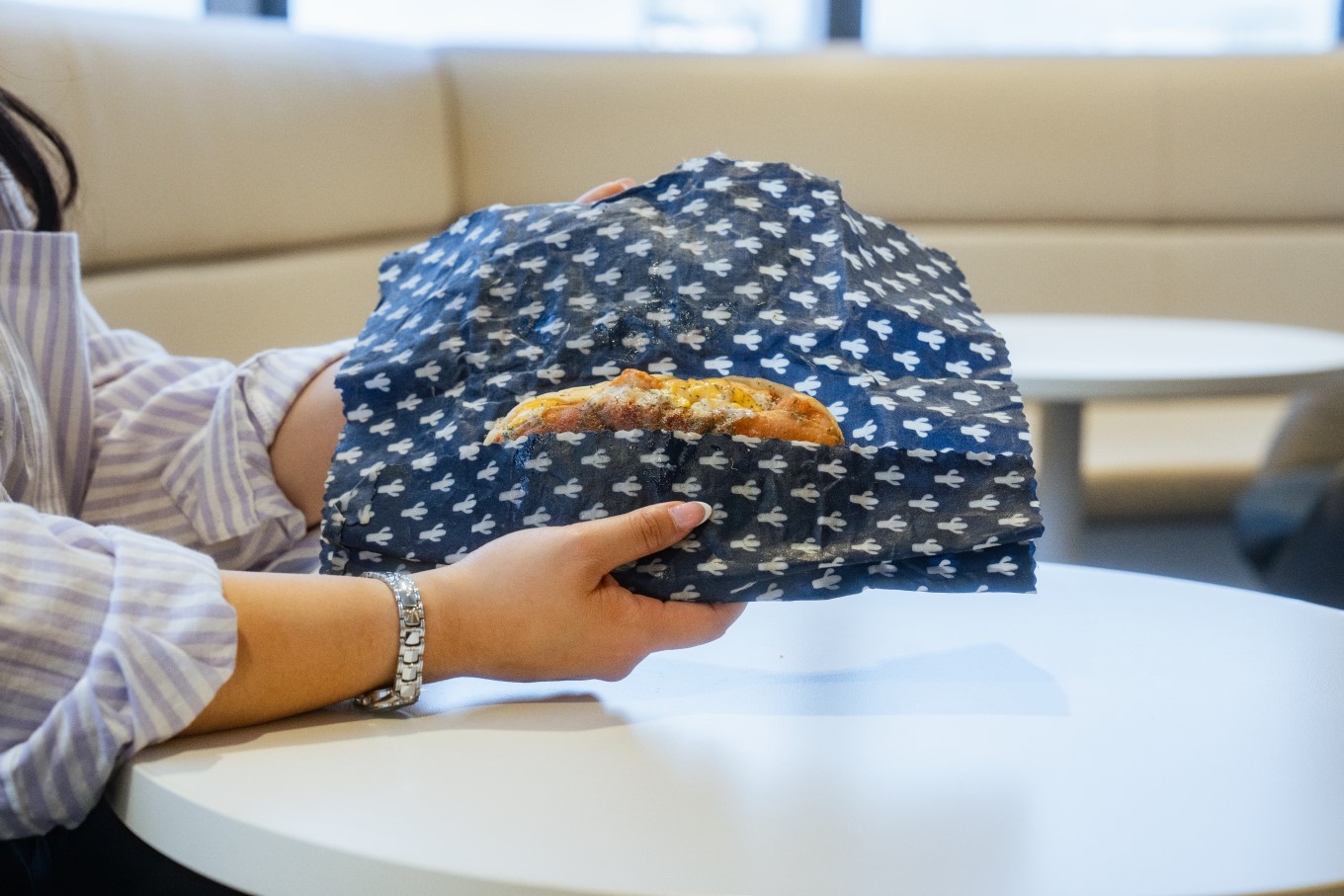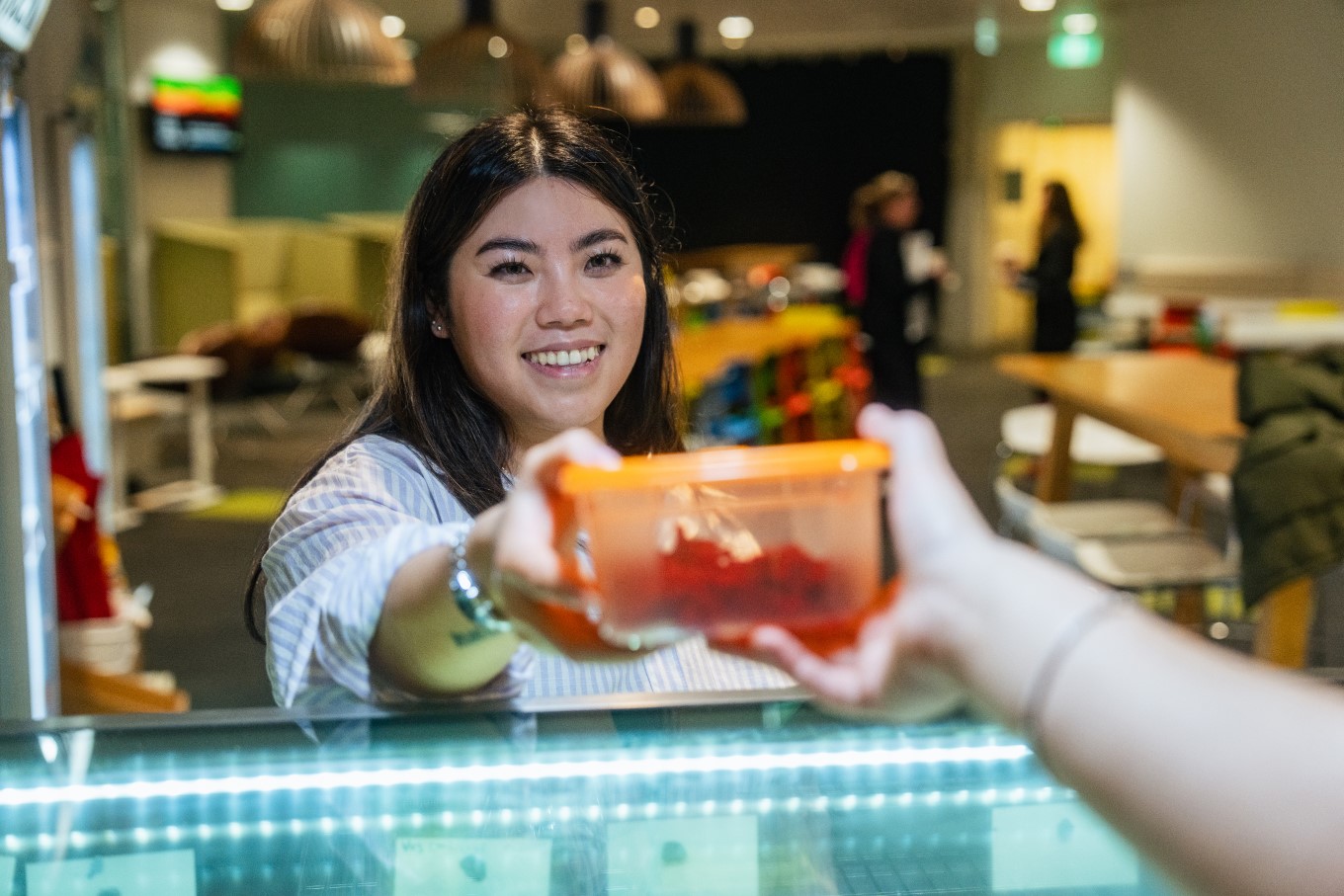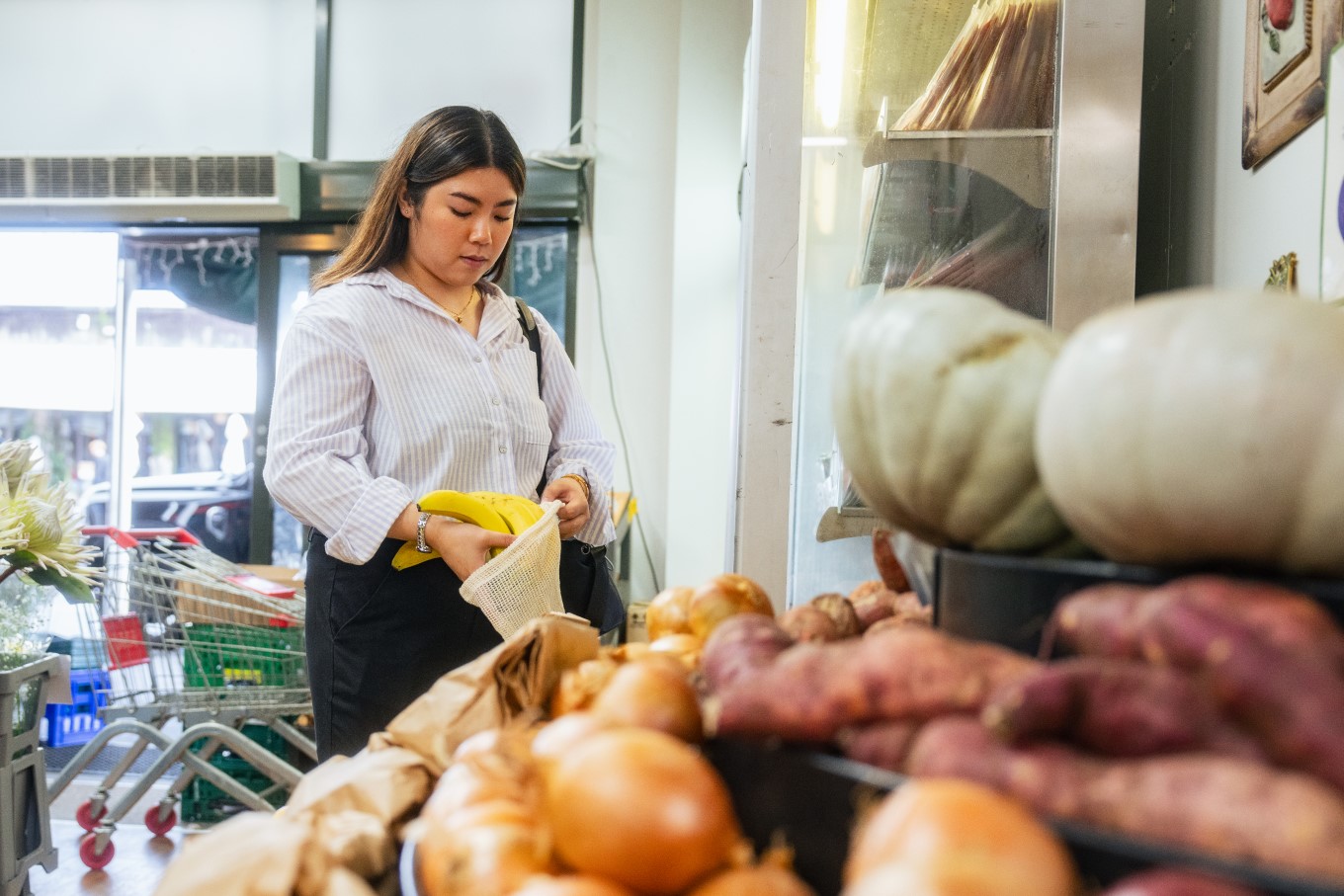Auckland Council has a big goal of sending zero waste to landfill by 2040. No one said it would be easy, but every action we take now will make a world of difference for the future. Participating in Plastic Free July is an opportunity for you to help Tāmaki Makaurau stay on track to achieving its zero-waste goal. You’ll also contribute to a global effort to reduce the amount of plastic that ends up in waterways and oceans.
Around 89 million people from 190 countries, including New Zealand, participated in Plastic Free July in 2023, and if you ever needed proof of the campaign's impact, check out the numbers. Last year, participants reduced plastic consumption by 240 million kg. They also reduced non-recoverable waste by 900 million kg and recyclable waste by 700 million kg. Even better, 87 per cent of surveyed Plastic Free July participants made at least one lasting change after the campaign ended.
This year, more Aucklanders are rising to the challenge, including WasteWise Coordinator Joanna Tao. The 23-year-old, who has a Master’s in Environmental Management, works with Auckland Council’s WasteWise team, organising workshops, talks and seminars to help teach Aucklanders how to reduce waste. But you don’t need a degree to make these simple switches, she says. Joanna shares some easy ways to cut down on plastic for Plastic Free July and beyond.
1. Start small
Plastic is everywhere, and if you’re reducing plastic for the first time, Joanna suggests starting with a small switch and, once you’ve mastered that change, incrementally incorporating more plastic-free alternatives to your life.
“Reducing plastic waste can be challenging initially because of the prevalence of plastic in our society – it’s almost in every single product! Start by doing something small, like switching to a reusable cup instead of a takeaway coffee cup. Start there, and make more and more switches in your life,” says Joanna.
“While it might seem small, it sends a message up the chain that people no longer want single-use cups. Just imagine the impact if all cafes stopped giving out takeaway cups.”
2. Do the prep
Rushing around and doing things on the go can lead to unnecessary plastic consumption. To avoid this, Joanna preps her meals, including her breakfasts, ahead of time. “I set aside a day each week, usually on a Sunday, where, I make all my breakfasts for the week and put them in glass mason jars so they’re ready for me to grab on my way out the door each morning.”
3. Boxing clever
Joanna normally brings her lunch to work in a metal lunchbox or uses a beeswax wrap to reduce packaging. By bringing leftovers to work, she also reduces food waste.

4. Create a kit
Takeaways are a common culprit for plastic waste, but Joanna is always prepared. “I have a roll-out kit with cutlery in it. I also have a nifty little bag that folds into a square, and I keep it in my handbag and take it with me everywhere so I never get caught short."
5. BYO Box
Sushi stores, cafes and takeaway spots catering to busy workers often use plastic containers, but we can change our food culture by BYOB-ing – bringing your own box.
“I often bring my container with me and ask the cafe to put food into a box, or I choose things that come in a paper bag, such as cookies.”

6. Get your work involved
Cut down on plastic in the office by removing plastic cups at water coolers and plastic plates or cups at functions and special events. Joanna’s office even has a lunchbox library – this communal container cubby allows her to grab a container if she ever needs one. “It’s great if I forgot to bring my lunchbox to work.”
7. Bulk up
When it comes to the weekly grocery shop, Joanna avoids plastic waste by going to a bulk food store to stock up on supplies such as pasta and cereal, which often come with single-use plastic packaging. “I can also buy exactly the amount I need,” adds Joanna.
8. Make it a hobby
Joanna has turned her love of cooking and baking into a plastic-free hobby. She bakes her own bread and even makes her own butter by simply whipping pasteurised milk (which she buys in reusable glass bottles from a local producer).
She also makes her own beeswax wraps at home. “To make beeswax wraps, I just sprinkle grated beeswax onto pieces of 100% organic cotton and bake them in the oven until the wax has melted. Then I clip them up to hang dry. They last a really long time, and to clean them, I just wipe them down in water as the beeswax gives them natural antibacterial qualities.”
9. Go green
When it comes to fruit and veges, a reusable produce bag is excellent for using at a produce store. Joanna also gets a farm box delivery from a local grower, reducing the food miles on her groceries. “Everything comes in a box from a local farm and it’s really fresh,” she adds.

10. Grow your own
While Joanna doesn’t have a garden where she currently lives, in the past she has been able to grow her own vegetables. “Growing up, my grandparents always grew their own veges and ate what was in season, and they showed me it’s very easy.”
Vegetables that grow well in Auckland year-round include beetroot, hardy lettuce, carrots and silverbeet. In spring, plant summer and autumn ripening vegetables such as pumpkins, potatoes, tomatoes, courgettes and cucumbers (store-bought cucumbers in particular are often wrapped in plastic).
11. Beauty counter culture
The bathroom is a place that attracts a lot of plastic waste from products such as shampoo, conditioner and cosmetics. Solid shampoos and soap bars are plastic-free alternatives, or try a brand that offers refills.
There are size limits for recyclable packaging and many cosmetics items are too small to be sorted at the council's recycling facility. You can take your empty beauty and cosmetic items to select stores as part of the TerraCycle programme.
You can search the programme up and look for places that recycles cosmetics and allow customers to return their empty packaging to be rescued and recycled.
“I like bringing back packaging as it sends a message to these global companies that consumers want change.”
12. School up
If you want to learn more ideas about going waste-free, why not attend a Plastic Free July workshop with the Wastewise advisors during the school holidays?
We will be at different libraries across Tāmaki Makaurau, so make sure you check out Our Auckland to find out where we will be next.


